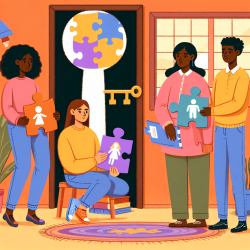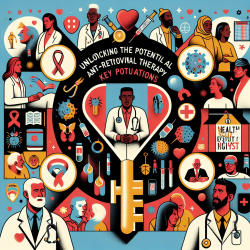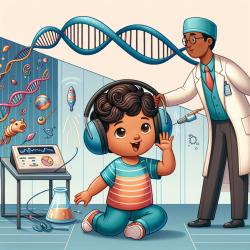As a practitioner working with adolescents on the autism spectrum, you are likely aware of the unique challenges these young individuals face. The transition from childhood to adulthood is a complex journey for anyone, but for those on the autism spectrum, it can be particularly daunting. The research paper "Exploring Three Core Psychological Elements When Treating Adolescents on the Autism Spectrum: Self-Awareness, Gender Identity, and Sexuality" sheds light on critical areas that deserve attention in therapeutic settings.
The Importance of Self-Awareness
Self-awareness is foundational for personal development and emotional regulation. For autistic adolescents, developing a sense of self can be challenging due to core symptoms of autism such as difficulties in social communication and repetitive behaviors. Enhancing self-awareness involves helping these individuals recognize their own emotions, thoughts, and behaviors.
- Encourage Self-Reflection: Use tools like journals or visual aids to help adolescents reflect on their experiences and emotions.
- Promote Inner Speech: Support the development of inner speech through activities that encourage verbal expression of thoughts and feelings.
- Facilitate Social Understanding: Engage in role-playing exercises to improve understanding of social cues and perspectives.
Navigating Gender Identity
Gender identity is another critical aspect for autistic adolescents. Many may experience gender dysphoria or identify as gender non-conforming. It's essential to create a supportive environment where they feel safe to express their gender identity.
- Create an Inclusive Space: Ensure that your practice is welcoming to all gender identities by using inclusive language and materials.
- Support Exploration: Encourage open discussions about gender identity and provide resources for further exploration.
- Advocate for Affirmation: Work with families and schools to support gender-affirming practices and reduce discrimination.
Understanding Sexuality
The exploration of sexuality is a natural part of adolescence but can be complex for those on the autism spectrum. These individuals may have fewer opportunities for sexual health education, leaving them vulnerable to misconceptions or negative experiences.
- Provide Comprehensive Education: Offer clear and accessible information about sexual health tailored to the needs of autistic adolescents.
- Address Safety Concerns: Discuss consent and personal boundaries to empower them in making safe choices.
- Create Safe Spaces: Establish environments where discussions about sexuality can occur without judgment or stigma.
The Path Forward: Encouraging Further Research
The research highlights the need for more evidence-based studies focused on long-term outcomes for autistic youth dealing with self-awareness, gender identity, and sexuality issues. As practitioners, staying informed about emerging research can enhance your therapeutic approach and better support your clients.
The journey through adolescence is complex for everyone but particularly so for those on the autism spectrum. By focusing on self-awareness, gender identity, and sexuality, practitioners can provide more effective support that respects each adolescent's unique path. Embrace these insights and continue exploring new research to enhance your practice.










